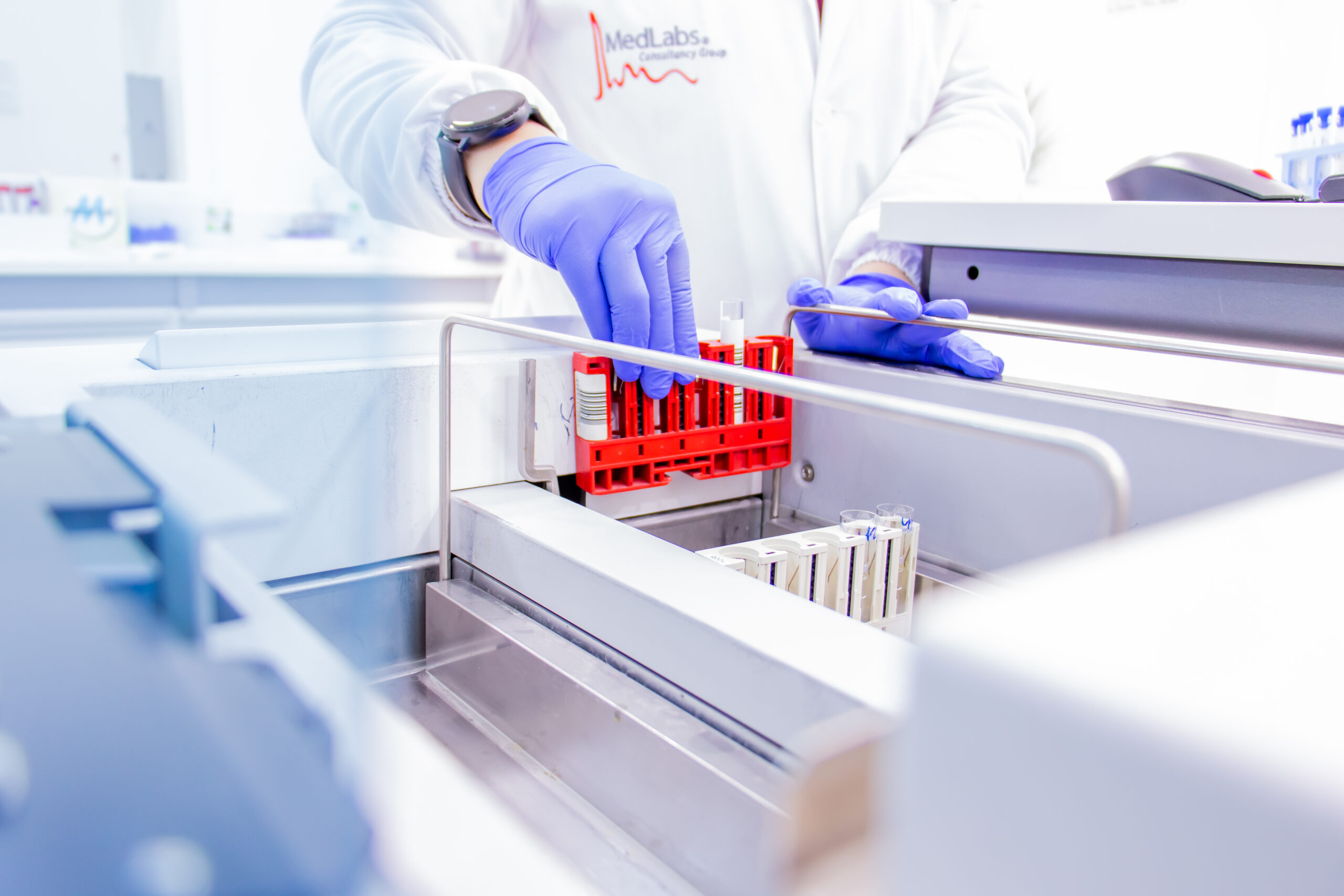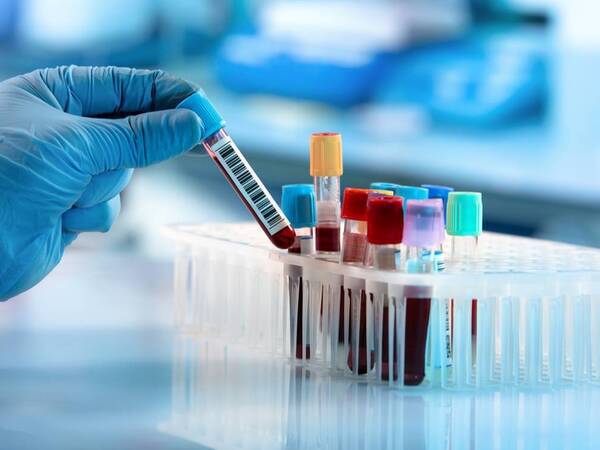
Blood Pregnancy Test: Types, Accuracy, and When It’s Recommended
While home pregnancy tests that rely on urine are popular for their convenience and quick results, they’re not always the most reliable option, especially in cases that require close monitoring or a higher degree of accuracy. That’s where blood pregnancy tests come in; they’re known for their high sensitivity and the ability to detect the pregnancy hormone (βhCG) at a much earlier stage, making them one of the most accurate methods for confirming pregnancy.
In this article, we’ll cover the different types of blood pregnancy tests, break down the differences between qualitative and quantitative testing, examine their accuracy, and explain when a blood test is more appropriate than a home test—all through a trusted medical lens.
What Is a Blood Pregnancy Test?
It is a laboratory analysis performed on a blood sample to detect the presence of the hormone βhCG (beta-human chorionic gonadotropin), which is produced after implantation occurs. This test can confirm pregnancy as early as 7 to 12 days after ovulation, and it is known for being more accurate than urine-based tests, particularly in cases that require precise medical confirmation.
Types of Blood Pregnancy Tests
There are two main types of blood pregnancy tests: qualitative and quantitative. Both are used to detect the presence of the pregnancy hormone, but each serves a different clinical purpose.
-
Qualitative βhCG Test
Much like a home pregnancy test, the qualitative blood test is designed to answer a simple question: Is there a pregnancy or not? It detects the presence of β-hCG without measuring the exact amount, providing either “positive” or “negative” results, and is typically used to confirm an early pregnancy. This type is known for its quick results and lower cost, but it isn’t suitable for monitoring pregnancy progression or diagnosing abnormal cases.
-
Quantitative βhCG Test
The quantitative blood test measures the exact level of βhCG in the bloodstream, expressed in milli-international units per milliliter (mIU/mL). This test is used in specific medical situations, such as tracking the development of early pregnancy, diagnosing possible ectopic pregnancies, or monitoring the decline of hCG levels following miscarriage or treatment. It can also help estimate gestational age based on hormone levels.
When Can a Blood Pregnancy Test Be Done?
A common question among women is: after how many days can a blood test confirm pregnancy? A blood pregnancy test can detect pregnancy approximately 7 to 12 days after ovulation or fertilization. It is the preferred option for individuals who want early confirmation of pregnancy or who are experiencing a delayed period, along with early pregnancy symptoms. In cases involving assisted reproductive techniques (such as IVF), it’s generally recommended to wait 10 to 14 days after embryo transfer to ensure accurate results.
How Accurate Is the Blood Pregnancy Test, and Are There Reasons It Might Not Detect Pregnancy?
The blood pregnancy test is highly accurate, with a sensitivity rate exceeding 99% when performed at the appropriate time. However, certain conditions may lead to a false-negative result, such as taking the test too early, before the level of βhCG has risen enough to be detected, or miscalculating the timing of ovulation. Additionally, certain medications or rare medical conditions can affect the result, although such cases are uncommon. Therefore, if pregnancy is still suspected despite a negative result, it’s recommended to repeat the test after two to three days.
Interpreting Blood Pregnancy Test Results
- A positive result on a qualitative test indicates that pregnancy is present, while a negative result means no detectable pregnancy.
- In a quantitative test, the result is provided as a numerical value representing the concentration of βhCG in the blood. A steady increase in levels generally points to a healthy pregnancy, while slow or stagnant increases may suggest an abnormal or ectopic pregnancy. Doctors typically interpret the following ranges: Very low levels (<5 mIU/mL) are considered negative, while levels above 25 mIU/mL are considered positive. However, values between 6–24 mIU/mL may require a repeat test within two days for confirmation.
When Is a Blood Test Recommended Over a Urine Test?
A blood pregnancy test is recommended in situations that require fast and accurate confirmation of pregnancy, such as:
- Early detection before the period.
- Unclear symptoms despite a negative urine test.
- Suspected ectopic pregnancy or molar pregnancy.
- Monitoring βhCG levels after miscarriage or fertility treatments.
- Estimating gestational age or monitoring fetal development in early pregnancy.
Are There Any Risks or Preparations for a Blood Pregnancy Test?
The test is completely safe and requires no special preparation. It involves drawing a small sample of venous blood using a needle; therefore, there are no significant risks associated with the procedure, and it is considered a routine analysis easily performed at laboratories and medical centers.
Conclusion
The βhCG blood test is a reliable and highly accurate method for detecting pregnancy and is widely used in clinical practice to confirm early pregnancy or track its progression in specific cases. However, timing and proper testing conditions remain essential to ensure reliable results. In cases of uncertainty or conflicting symptoms, medical follow-up and test repetition are always recommended to safeguard the health of both the mother and the developing fetus.
FAQ
How early can a blood test detect pregnancy
A blood test can detect pregnancy as early as 7 to 12 days after ovulation or conception. This is earlier than most urine tests, which typically become accurate after a missed period. Blood tests are more sensitive because they can detect even very low levels of the pregnancy hormone βhCG in the bloodstream.
How long does it take to get blood test results for pregnancy
The time it takes to receive results from a pregnancy blood test depends on the laboratory. In many clinics, results are available within a few hours to 24 hours. Some rapid testing facilities may provide same-day results, while others may require one full business day, especially if additional testing is needed.
Is a high level of βhCG always normal?
An elevated βhCG level is not always a normal indicator. While its gradual increase is considered an early sign of a healthy pregnancy, certain conditions can cause abnormal elevation, such as molar pregnancy, twin pregnancy, or some rare tumors. Fertility medications may also temporarily affect the hormone level. Therefore, if the level is higher than expected, additional tests are recommended for accurate evaluation.
Can we help you?








